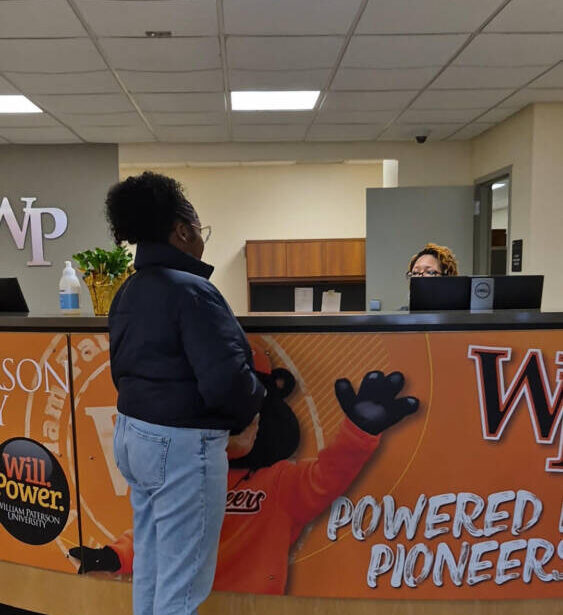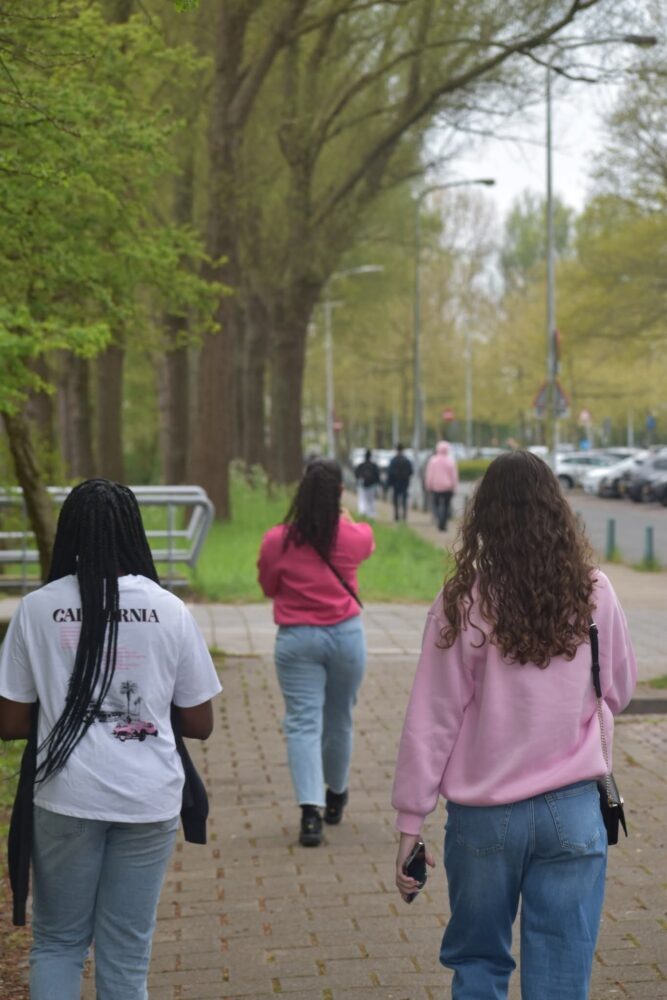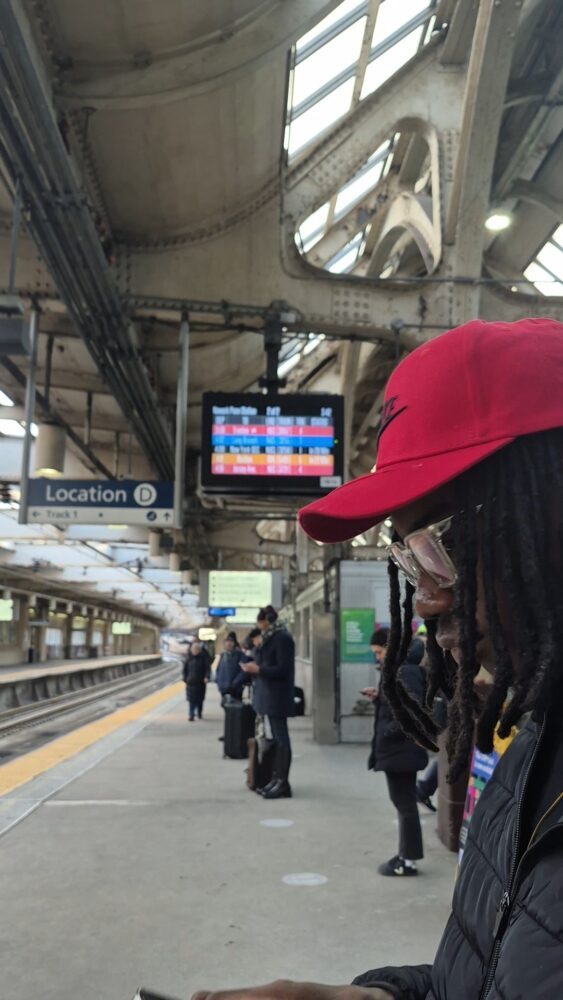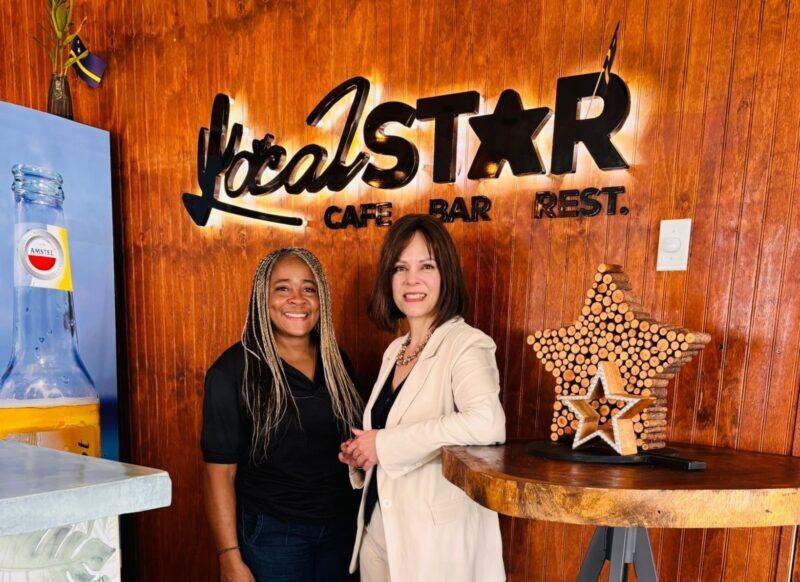PHILIPSBURG – The Ombudsman for Sint Maarten, Gwendolien Mossel, has yet to receive a formal response to her damning report on the social crisis after hurricane Irma. Neither from the government of Sint Maarten or from the Hague.
“I know for a fact that in the Netherlands it is not allowed to let people endure such inhumane situations for years on end”, says Mossel.
Her investigations have shown that only ten percent of the homes on the island have been repaired and that some of the inhabitants still live in harrowing situations. According to the Ombudsman, the intervention by the World Bank is a major issue when it comes to home repairs. “The World Bank was appointed by the Netherlands to fight corruption. But we’re talking about people here! We have to go back to the drawing board.”
Time-consuming
In September 2017, hurricane Irma ravaged the island. A lot of inhabitants lost their homes. Funds were made available quickly. The World Bank administers a 470 million euro fund for rebuilding efforts on behalf of the Netherlands. The government of Sint Maarten presents the World Bank with projects. Mossel concludes in her report that the bank is too ‘bureaucratic, complex, and that they work in a time-consuming manner’.
Parliamentarians and ministers on Sint Maarten have only reacted through the press. “Because yeah, there are elections coming up”, says Mossel. “Even though it is a positive thing that politicians react to the report, it is imperative that they do something to change the process. The government has a crucial role in this.”
‘Unacceptable’
The interim minister of Public Housing, Spatial Planning, Environment, and Infrastructure, Chris Wever, says that he is worried about the low number of inhabitants that have been helped thus far. “If this continues, it will take five years, that’s unacceptable.” He wants to meet with the World Bank and the National Recovery Program Bureau (NRPB) as soon as possible.
Mossel hopes her report will reach the Hague through her Dutch counterpart, the National Ombudsman Reinier van Zutphen. She also informed King Willem-Alexander about her report during the Kingdom Conference for Ombudspersons last month.
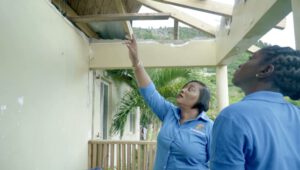 Ombudsman Sint-Maarten sounds the alarm Want to know more about the harrowing situations? Watch and read about it via this link. |
The World Bank does not want to respond to Mossel’s report and refers to the National Recovery Programe Bureau (NRPB). This bureau was set up in January of 2019 and has been conducting rebuilding projects since then. “The projects are set up according to the standards of the World Bank”, says director of the NRPB Claret Connor. “Our main focus is to execute the projects in a manner that is sustainable and precise. Building up resilience takes time.”
Risks known
Regarding questions whether or not it could’ve been done more quickly and which barriers the NRPB encounters when it executes the projects, Connor cites an interim report from the World Bank. The report indicates that a major issue is the lack of capacity within the government to manage several large projects at the same time.
“The World Bank and the Netherlands knew about this particular risk two years ago, and yet they chose this set up.”, notes the Ombudsman.
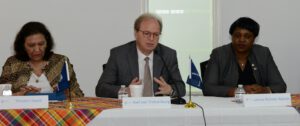 Picture: Tim van Dijk Criticism towards the World BankThe criticisms that the World Bank delays the rebuilding efforts on Sint Maarten are not new. In May 2019, the World Bank responded to those criticisms, read about it here. |
During the presentation of the film that accompanies the report, more stories saw the light of day. “Someone who’s roof has already been repaired and who signed a contract with the NRPB for additional funds for other repairs to his home. A success story, one could say. But four months after signing the agreement nothing has happened”, says Mossel.
The Ombudsman says that she’ll keep on ‘pushing her report’ on the government of Sint Maarten. She’s also making use of all available channels to be heard in the Hague. “They are the donors. So they have the final say.





